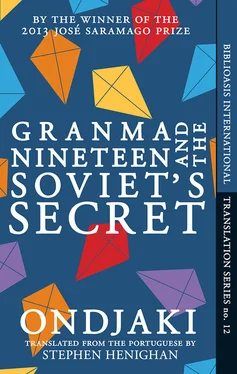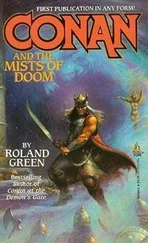“Unexpected problems, Comrade?”
3.14’s voice had never hit me so clearly. He laughed as he looked at me, because he could see that I was terrified. He handed me the missing stick of dynamite.
“Are yours already done, Pi?”
“Yeah. The sand was really hard but I had the wire cutters to dig with. Let’s go place your last one.”
“Yeah, let’s go. There’s nobody here?”
“I don’t think so. All quiet. But we have to step on it, we still have to finish the most complicated part of the plan.”
“What’s that?”
“I’ll tell you in a minute. Hey, I buried mine lying down so I didn’t waste time.”
“Yeah, me too.”
With the wire cutters acting as a spade it went a lot faster, but the sand at the final point was still soft. 3.14 looked up from where we were standing, pressed right up against the central part of the Mausoleum. That peaked mountain of cement looked just like a rocket that was ready for lift-off.
“It’s a lot of cement.” 3.14 looked worried.
“Should we set more dynamite?”
“We don’t have time.”
He moved closer to the wall and looked inside through a window without a pane, which opened on pure darkness. Then he looked at his feet.
“This is what I was looking for. I knew I’d seen this trench.”
“What trench?”
Right around the Mausoleum was a kind of small groove, cut into the cement, as though it were a path made so that the ants wouldn’t have any doubts about where to go, or invent new paths with twists and turns, as they liked to do. It was a flaw in the cement, a sort of narrow mini passageway that had been laid out in an enormous circle that linked up those holes where we had placed the dynamite.
“You see? A great idea of those Soviets — they don’t even know how they’re helping us. It must be for irrigation, to allow the water to circulate.”
“So?”
“So the problem of our fuse is solved.”
“But we don’t have any wire to light dynamite to join up the cardinal points.”
“We don’t need wire. We just need ‘hod drink,’ as Gudafterov says.”
“I get it!”
“That’s all we’re lacking, Comrade. Then we make a fuse with the drink linking up with the hiding-place of our choice. And then we light it.”
“They do it with gasoline in the movies.”
“But ‘hod drink’ will do it, too. I saw a house get set on fire in a movie with half a bottle of whisky.”
“There aren’t any leftovers in granma’s house. Every last drop was drunk at the farewell party.”
“But I know of someone who can help us.”
“Who?”
“Comrade Charlita. It’s time for a change of venue.”
We ran again, slipping out through the hole in the fence, turned into the alley and only stopped when we reached Dona Libânia’s sidewalk.
“Are you playing, children?” Sometimes Dona Libânia was like Granma Catarina: she appeared without making noise.
“Yes, Dona Libânia.”
“Then you’ve already been to see what’s happening out there on the beach?” She was looking for information.
“We’ve just come from there. The Soviets are trying to forbid everybody from entering the beach. They say they have orders from some general to close the beach because of I don’t know what-all about the expansion of the construction site.”
“You heard that over there on the beach?”
“Yes, just now.”
“But the sand you have on your feet doesn’t come from the beach.”
“Goodbye, Dona Libânia. We’ve got to get going.”
We moved along a short distance and took the opportunity to sit down on Senhor Tuarles’s sidewalk to see if it was possible to speak to Charlita.
Dona Isabel sat on the veranda of their house, holding the AK-47 in her lap as though it were a baby. This happened a lot, I don’t know why; Senhor Tuarles never went looking for his AK-47, not even when he was in a rush. One night we were woken up by loud noises in the chicken coop. It seems that Granma Catarina had seen figures moving around in the yard and had phoned Senhor Tuarles to warn him and see if he could come and take a look at what was going on. Granma Nineteen saw everything from the window of her room: Senhor Tuarles came out in his boxer shorts as far as the wall of his house — I figure it must have been about two in the morning — and peered into Granma Nineteen’s yard. Then he whirled around and said in a loud voice that was heard by all: “Isabel, go upstairs and get the AK-47.”
When he went to beat the shit out of the priest, I think the same thing happened: he went on foot as far as the church, he was nervous the whole way there, warning everybody that he was going to kill the priest because he had “done it” with the little girls of Bishop’s Beach. Dona Isabel walked behind him, pleading with him to calm down, but only once they were close to the Kinanga Cinema did he remember to say: “Isabel, go get the AK-47.”
I figure that memories are invisible restless tinglings that stay inside people. When I remember that stuff I start to laugh to myself until 3.14 asks me if I’m crazy to laugh alone like that.
“I’m just remembering stuff.”
“But you’re not an elder yet; you can’t have much to remember.”
“They’ve already told me lots of things about the old days. I’m laughing at old things, Pi.”
“Old things aren’t very funny.”
“It depends, Pi. It depends.”
There was Dona Isabel with the AK-47 in her lap waiting, because at any moment Senhor Tuarles might make a sign for her to bring it to him. These were the things that 3.14 didn’t understand, but that made me laugh: after handing over the AK-47 to Senhor Tuarles, what Dona Isabel had to do, which was what Senhor Tuarles wanted Dona Isabel to do, was to stand there for a long time begging him not to use the AK-47, nor to threaten anyone, nor even to put a bullet in the magazine. And Senhor Tuarles always did the same thing, uttering the same sentence: “It’s all right, Isabel. You can put the AK-47 away.”
As Senhor Tuarles remained far away, getting worked up by the arguments and not making any sign, Dona Isabel went upstairs to put away the AK-47. We heard a feeble whistle coming from the old chicken coop. Charlita was calling us.
“Charlita, we’ve come to talk to you.”
“If my dad catches you…”
“It’s a last favour. The mission’s moving forward.”
“I don’t want to know about it.”
“Please, you don’t need to talk to us anymore. Just get a bottle of hot drink and leave it here on the wall. We’ll grab it from Granma Nineteen’s house.”
“Hot drink?”
“Yes, some drink like whisky or whatever.”
“How am I gonna know?”
“Open it and smell it. The strongest one is the one you want.”
“It can’t be rubbing alcohol?”
“I don’t think so because it’ll disappear before we set it alight.”
“What are you guys gonna set alight?”
“You said you didn’t want to know about it.”
“All right.” Her face grew pensive. “After nine o’clock I’ll leave it on the wall.”
“Okay. Affirmative.”
We heard voices singing really out-of-tune songs in Soviet which, even without understanding the lyrics, gave you a headache just to listen to them. We went to Granma Nineteen’s veranda, climbed up onto the wall and saw the drunken soldiers singing and drinking even more.
“That’s a really good sign. Let them keep on drinking.”
“I’m thinkin’ about something, 3.14.”
“Don’t start with your tales.”
“It’s not that. But we can’t blow everything up with people inside.”
“Listen, Comrade, it sounds like you ain’t understanding this business clearly. Today they’re going to close the beach, tomorrow they may start telling people to pack their bags, and the day after tomorrow, thanks to that dynamite you saw today, you may be imprisoned in that bathroom of your granma’s where you all hide from the lightning during thunderstorms.” 3.14 was speaking in a low voice, very close to my face. “Today those tupariovs are all drunk and nobody’s going to sleep at the construction site, and if somebody does spend the night there, well, too bad.”
Читать дальше












